Choosing the Right Oil for Your Air Compressor: A Comprehensive Guide

When it comes to maintaining your air compressor, choosing the right oil is crucial. The oil you use plays a vital role in keeping your compressor operating efficiently and effectively. However, with so many options available on the market, it can be overwhelming to determine which oil is the best fit for your specific compressor.
To make the decision-making process easier, this comprehensive guide will provide you with all the information you need to choose the right oil for your air compressor. We will delve into the different types of compressor oils available, their properties, and the factors you should consider when making your selection.
First and foremost, it is important to understand that not all compressor oils are created equal. Different types of compressors require different types of oil to function optimally. Rotary screw and centrifugal compressors typically require synthetic oils, while reciprocating compressors can utilize either synthetic or mineral oils. It is important to consult your manufacturer’s guidelines to determine the appropriate oil for your compressor.
When selecting compressor oil, you should also consider the viscosity and additives. Viscosity refers to the oil’s thickness and its ability to flow at different temperatures. For instance, a high viscosity oil may be suitable for high-temperature environments, while a low viscosity oil may be better suited for colder conditions. Additionally, additives such as anti-wear agents, detergents, and rust inhibitors can enhance the oil’s performance and prolong the life of your compressor.
Key Factors to Consider for Oil Selection
Choosing the right oil for your air compressor is crucial for ensuring optimal performance and longevity of the equipment. Here are several key factors to consider when selecting the appropriate oil:
- Type of compressor: The type of compressor you have plays a significant role in determining the appropriate oil. There are different types of compressors, such as rotary screw compressors, reciprocating compressors, and centrifugal compressors, each requiring specific types of oils.
- Viscosity: Viscosity refers to the thickness or consistency of the oil. It is important to select an oil with the right viscosity to ensure proper lubrication and heat dissipation within the compressor. The manufacturer’s guidelines or specifications can help determine the recommended viscosity range.
- Additives: Some oils contain additives that provide additional benefits, such as improved oxidation resistance, anti-wear properties, and better corrosion protection. It is essential to consider these additives based on your compressor’s operating conditions and the specific requirements of your application.
- Operating conditions: The operating conditions of your compressor, including temperature, humidity, and pressure, should be taken into account when selecting oil. High-temperature environments may require oils with higher thermal stability, while humid conditions may necessitate oils with better water separation capabilities.
- Oil life: The expected oil life should also be considered when choosing the right oil. Some oils have longer service intervals, reducing maintenance costs and downtime. Additionally, oils that have better oxidation resistance can prolong the life of the oil, minimizing the need for frequent oil changes.
By considering these key factors, you can make an informed decision and select the most suitable oil for your air compressor, maximizing its efficiency and reliability.
Understanding Viscosity and Its Impact on Air Compressor Performance
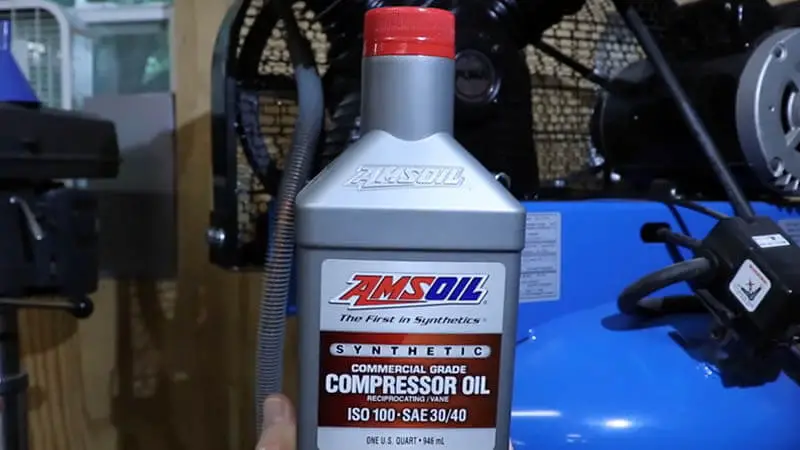
What is viscosity?
Viscosity refers to the thickness or consistency of a fluid, and it plays a crucial role in the performance of an air compressor. It is a measure of a fluid’s resistance to flow, and it is typically measured in centistokes (cSt) or Saybolt Universal Seconds (SUS). Understanding the viscosity of the oil used in an air compressor is important because it affects the compressor’s efficiency, lubrication, and overall performance.
The impact of viscosity on efficiency
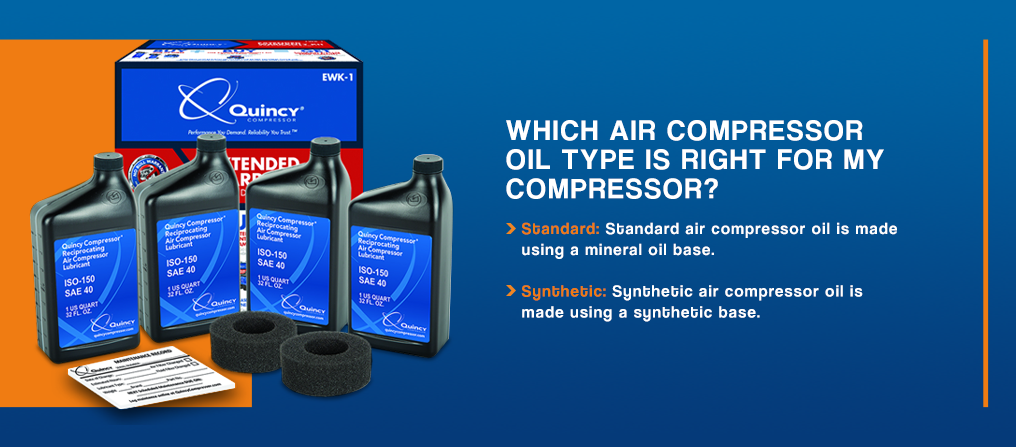
The viscosity of the oil used in an air compressor has a direct impact on its efficiency. If the oil is too thin or has a low viscosity, it may fail to provide adequate lubrication and protection to the moving parts of the compressor. This can result in increased friction, wear, and heat generation, leading to decreased efficiency and potentially causing damage to the compressor over time. On the other hand, if the oil is too thick or has a high viscosity, it can restrict the flow of the oil and impede the compressor’s performance, resulting in decreased efficiency and increased energy consumption.
The importance of proper lubrication
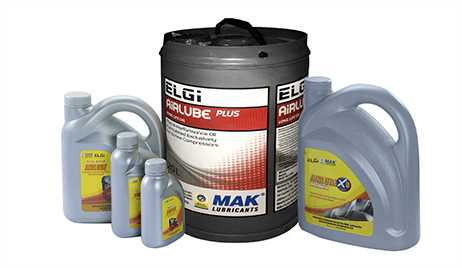
Proper lubrication is essential for the smooth operation of an air compressor. The oil used in the compressor not only reduces friction between moving parts but also helps dissipate heat and prevents corrosion. Viscosity plays a crucial role in ensuring proper lubrication. If the oil’s viscosity is too low, it may not be able to form a sufficient film of lubrication, leading to increased wear and tear on the compressor’s components. On the other hand, if the oil’s viscosity is too high, it may not be able to flow properly to all the necessary areas, resulting in inadequate lubrication and potential damage to the compressor.
Finding the right viscosity for your air compressor
Choosing the right viscosity of oil for your air compressor depends on factors such as the manufacturer’s recommendations, operating conditions, and ambient temperature. Consulting the compressor’s user manual or contacting the manufacturer for guidance is highly recommended. In general, air compressors operating in normal conditions can typically use oils with a viscosity range between ISO VG 32 and ISO VG 68. However, for extreme temperatures or high-demand applications, it may be necessary to use oils with higher viscosities to ensure proper lubrication and performance.
In conclusion, understanding the impact of viscosity on air compressor performance is crucial for choosing the right oil. The viscosity of the oil affects efficiency, lubrication, and overall performance. By selecting the proper viscosity and regularly monitoring and maintaining the oil levels, air compressor owners can ensure optimal performance and prolong the lifespan of their equipment.
Synthetic vs. Conventional Oils: Pros and Cons
Pros of Synthetic Oils
Synthetic oils are specially engineered to provide superior lubrication and protection for your air compressor. Some of the key advantages of synthetic oils include:
- Higher Temperature Stability: Synthetic oils have a higher resistance to heat compared to conventional oils, making them ideal for air compressors that operate at high temperatures.
- Improved Lubrication: Synthetic oils have better lubrication properties, which help reduce friction and wear on the compressor’s moving parts, resulting in improved efficiency and longer lifespan.
- Extended Oil Change Intervals: Synthetic oils have a longer service life compared to conventional oils, allowing for longer periods between oil changes. This can help reduce maintenance costs and downtime.
- Cold-Weather Performance: Synthetic oils have better cold-weather performance, as they have a lower pour point and better flow characteristics at low temperatures, ensuring proper lubrication even in extreme conditions.
Cons of Synthetic Oils
While synthetic oils offer many benefits, there are some drawbacks to consider:
- Higher Cost: Synthetic oils are generally more expensive than conventional oils. This higher cost is often justified by the extended oil change intervals and improved performance.
- Potential Compatibility Issues: Synthetic oils can sometimes have compatibility issues with older air compressors. It is important to check the manufacturer’s recommendations and consult with a professional if uncertain.
Pros of Conventional Oils
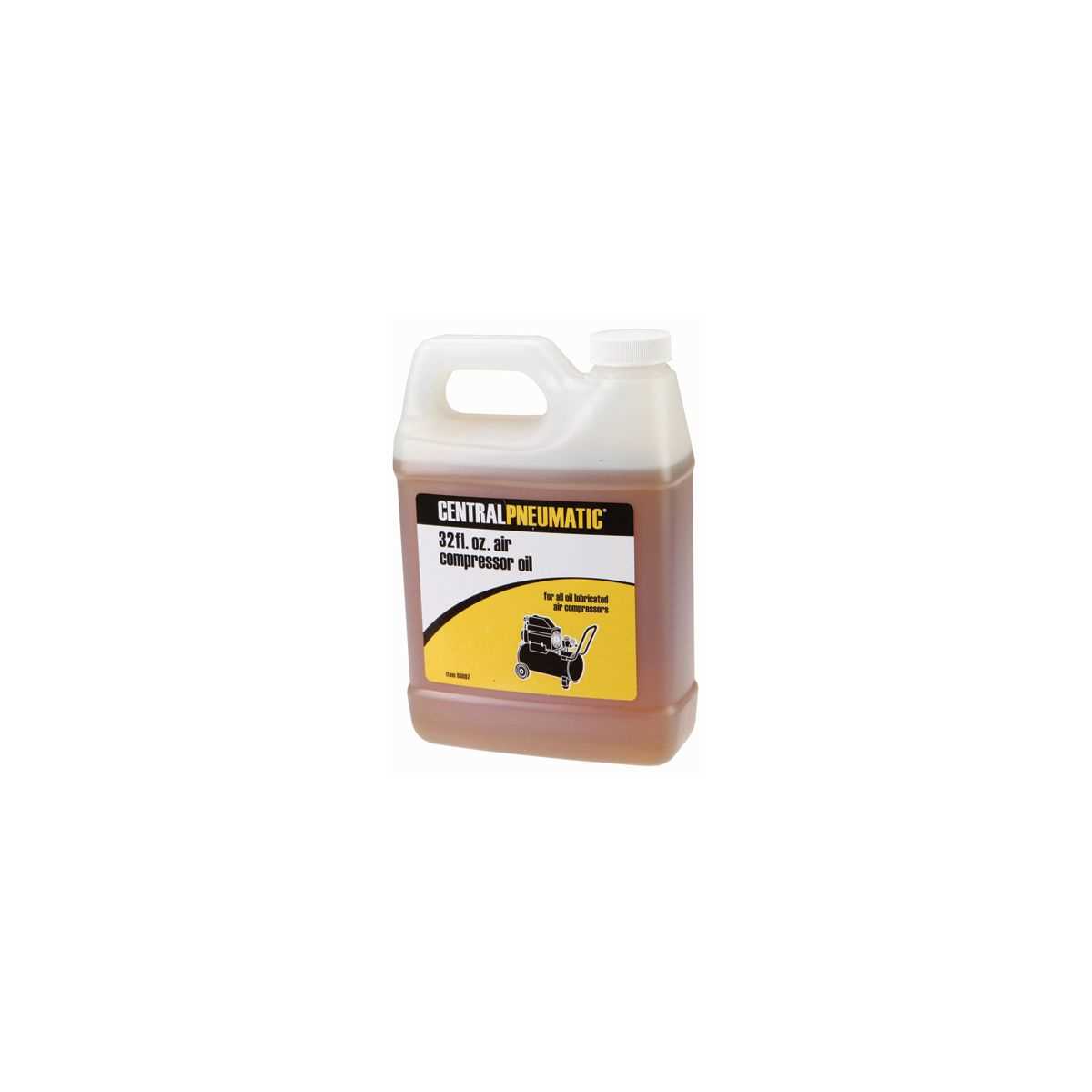
Conventional oils have their own advantages that make them a viable choice for air compressors:
- Lower Cost: Conventional oils are generally more affordable compared to synthetic oils, making them an economical choice for those on a tight budget.
- Proven Performance: Conventional oils have been used for many years and have a long history of reliable performance in air compressors.
- Wide Availability: Conventional oils are widely available and can be purchased at most auto supply stores, making them easily accessible.
Cons of Conventional Oils
Despite their advantages, conventional oils have some limitations:
- Lower Temperature Stability: Conventional oils may not perform as well at high temperatures as synthetic oils, potentially leading to increased friction and wear.
- Shorter Oil Change Intervals: Conventional oils generally require more frequent oil changes compared to synthetic oils, increasing the maintenance requirements and costs.
Ultimately, the choice between synthetic and conventional oils for your air compressor depends on your specific needs, budget, and the manufacturer’s recommendations. Consider the pros and cons of each type before making a decision.
The Importance of Regular Oil Changes for Air Compressor Maintenance
Regular oil changes are an essential part of air compressor maintenance to ensure its optimal performance and longevity. Oil plays a crucial role in lubricating the various moving parts inside the compressor, reducing friction and preventing wear and tear. Over time, the oil may become contaminated with dirt, debris, and moisture, which can impair its ability to function effectively.
Changing the oil on a regular basis helps remove these contaminants and ensures that the compressor is running smoothly and efficiently. Neglecting to change the oil can lead to increased friction between moving parts, resulting in higher operating temperature and reduced overall efficiency. This can lead to costly repairs and even the need to replace the compressor prematurely.
When it comes to air compressor maintenance, it is important to follow the manufacturer’s recommendation on oil change intervals. Different compressors may have different requirements, so consulting the user manual is crucial. Typically, oil changes are recommended every 500 to 1,000 hours of operation or every three to six months, depending on usage and operating conditions.
In addition to regular oil changes, it is also important to use the correct type of oil for your air compressor. Different compressors may have specific oil requirements based on factors such as temperature, pressure, and the type of compressor pump. Using the wrong oil can lead to poor lubrication and increased wear and tear on the compressor, ultimately decreasing its lifespan.
Proper oil maintenance and regular changes not only ensure the smooth operation of your air compressor but also extend its lifespan and improve its overall efficiency. It is an essential part of routine maintenance that should not be overlooked.
Common Types of Oil Contaminants and How to Prevent Them
When it comes to air compressors, using the right oil is crucial for optimal performance and longevity. However, oil can become contaminated over time, which can negatively impact the overall operation of the compressor. It’s important to be aware of common types of oil contaminants and how to prevent them to ensure the smooth functioning of your air compressor.
Dirt and Dust
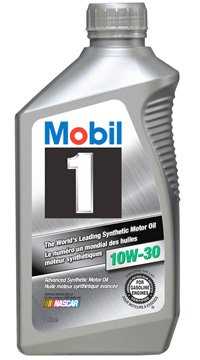
Dirt and dust particles are one of the most common types of oil contaminants. They can enter the compressor through the air intake or during maintenance procedures. These contaminants can cause premature wear and tear of the compressor components, leading to decreased efficiency and potential breakdowns. To prevent dirt and dust contamination, it is necessary to regularly clean the air intake filters and maintain a clean working environment.
Water
Water is another common contaminant that can mix with the oil in the compressor. Moisture can enter the system through the air intake or condense within the compressor. Water contamination can lead to oil emulsion, reduced lubrication, and corrosion of internal parts. To prevent water contamination, it is important to install and maintain proper moisture separators and drain any accumulated water from the system regularly.
Chemical Contaminants
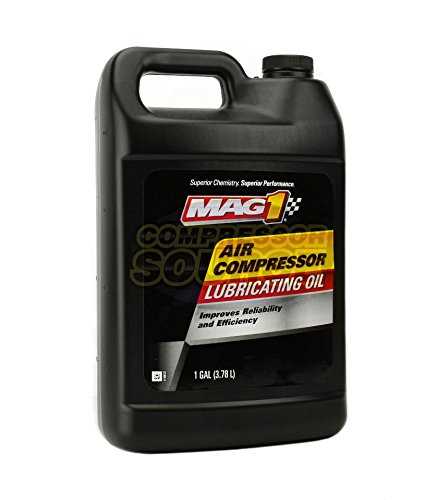
Chemical contaminants, such as solvents, acids, and cleaning agents, can also find their way into the compressor oil. These types of contaminants can have a detrimental effect on the oil’s lubricating properties and cause corrosion or damage to the compressor components. To prevent chemical contamination, it is important to handle and store chemicals properly, ensuring they are kept away from the compressor and its oil.
Sludge and Carbon Deposits
Over time, oil can develop sludge and carbon deposits due to extended use and insufficient maintenance. These contaminants can clog filters, valves, and other components, leading to reduced airflow and increased operating temperatures. Regular oil changes and proper maintenance procedures, such as cleaning or replacing filters, can help prevent the buildup of sludge and carbon deposits.
Preventive Measures
To prevent oil contamination in air compressors, it is important to follow some preventive measures. Regularly inspecting and cleaning the air intake filters and moisture separators is essential. Additionally, performing routine oil analysis and changing the oil as recommended by the manufacturer can help identify and prevent early signs of contamination. Finally, ensuring proper storage and handling of chemicals and maintaining a clean working environment can further reduce the risk of oil contamination.
By being aware of the common types of oil contaminants and implementing preventive measures, you can keep your air compressor running smoothly and extend its lifespan. Regular maintenance and proper oil management are key to maximizing the performance and efficiency of your air compressor.
Special Considerations for High-Temperature Environments
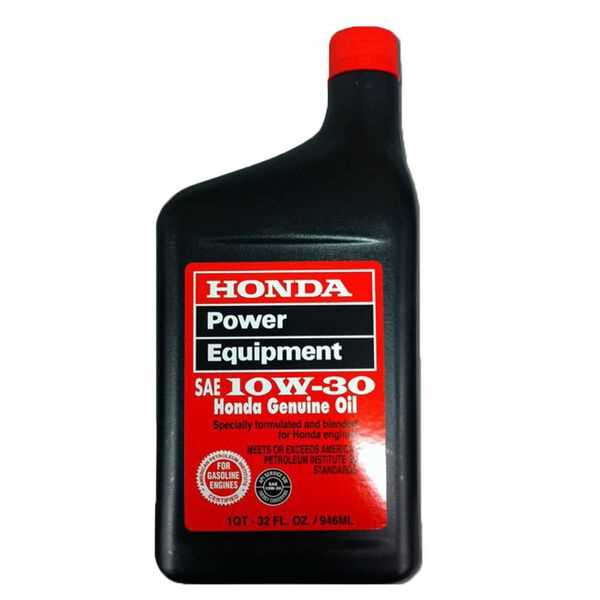
In high-temperature environments, it is crucial to select the right oil for your air compressor to ensure optimal performance and longevity. The operating temperature of the air compressor can have a significant impact on the oil’s viscosity and stability, making it essential to choose an oil that can withstand these extreme conditions.
Viscosity Rating
When operating in high-temperature environments, it is essential to consider the oil’s viscosity rating. High temperatures can cause the oil to thin out, leading to reduced lubrication and potential damage to the compressor’s internal components. Choosing an oil with a higher viscosity rating can help maintain a thicker oil film, providing better lubrication and protection.
Thermal Stability
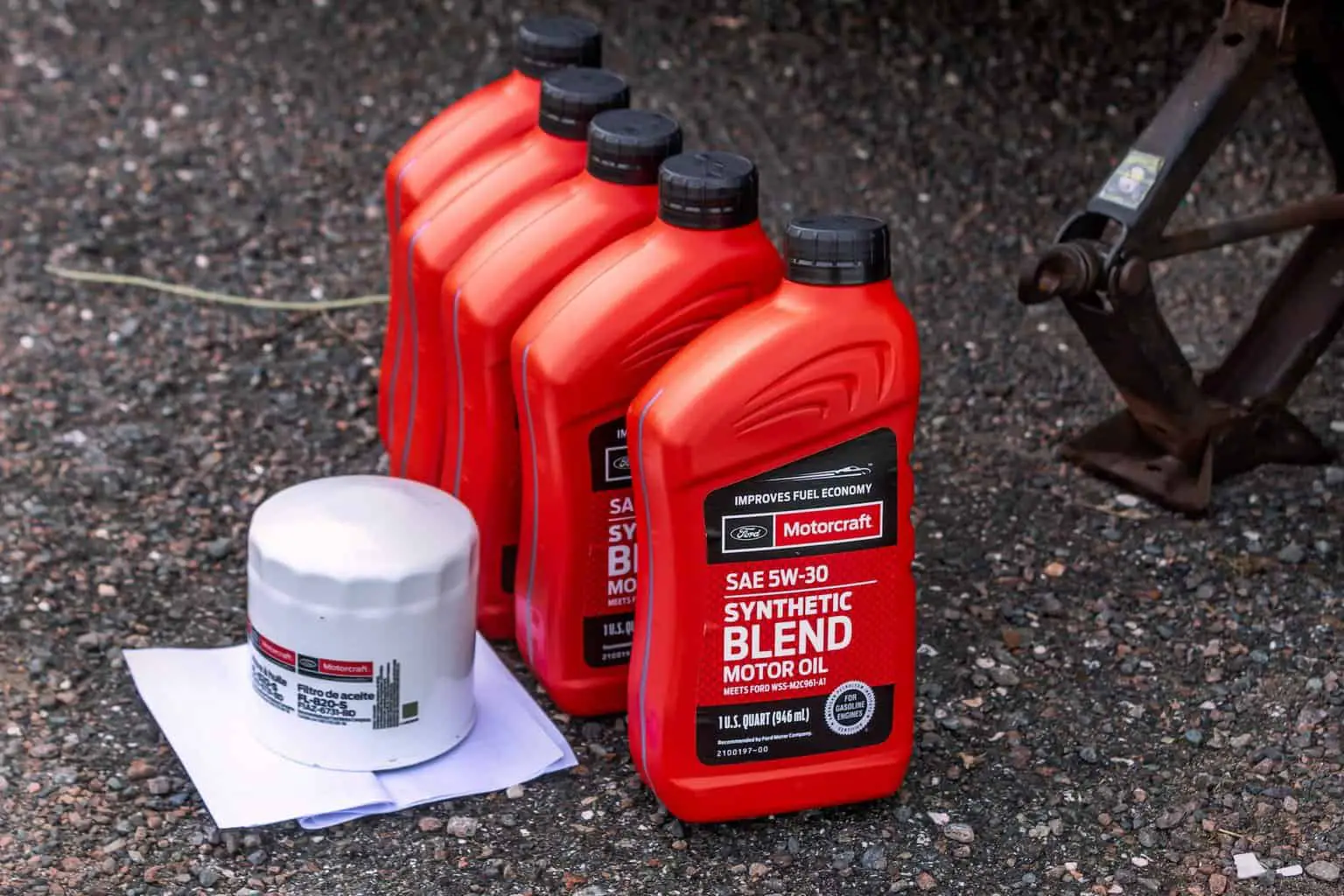
Another crucial factor to consider in high-temperature environments is the oil’s thermal stability. Heat can cause the oil to break down and form harmful deposits that can clog the compressor’s passages and reduce its efficiency. Selecting an oil with excellent thermal stability can help minimize the risk of deposit formation and ensure consistent performance under extreme heat.
Additive Package
When choosing oil for high-temperature environments, it is vital to consider the additive package. Additives can enhance the oil’s performance and provide additional protection against oxidation, wear, and corrosion. Look for oils with robust additive packages specifically formulated for high-temperature applications to ensure optimal performance and longevity in these challenging conditions.
Regular Inspection and Maintenance
Lastly, it is crucial to regularly inspect and maintain your air compressor in high-temperature environments. Monitor the oil condition, temperature, and any signs of degradation. Perform routine oil changes and cleaning to remove any contaminants that may have entered the system. By staying proactive with maintenance, you can minimize the risk of premature failure and ensure optimal performance of your air compressor.
In conclusion, when operating an air compressor in high-temperature environments, it is essential to consider the oil’s viscosity rating, thermal stability, additive package, and regular inspection and maintenance. Choosing the right oil and following these guidelines will help ensure optimal performance and longevity of your air compressor, even in the most demanding heat conditions.
Choosing the Right Oil Filter for Your Air Compressor
When it comes to maintaining your air compressor, choosing the right oil filter is essential. The oil filter plays a crucial role in removing contaminants from the oil, ensuring that the compressor operates smoothly and efficiently. Without a proper oil filter, these contaminants can build up over time and compromise the performance and lifespan of the compressor.
Consider the Type of Compressor: Before selecting an oil filter, it’s important to consider the type of air compressor you have. Different compressors may require different types of filters, so it’s important to consult the manufacturer’s guidelines or specifications. The type of compressor can also determine the size and capacity of the oil filter needed.
Filter Efficiency: Another factor to consider when choosing an oil filter is its efficiency in capturing contaminants. Look for filters with a high filtration efficiency rating, as this indicates their ability to capture smaller particles. A good oil filter will have a high-efficiency rating, ensuring that contaminants are effectively removed from the oil.
Filter Capacity and Lifespan: The capacity and lifespan of the oil filter are also important considerations. A larger capacity filter will be able to hold more contaminants before needing to be replaced or cleaned. Additionally, consider the lifespan of the filter and how frequently it needs to be replaced or serviced. It’s important to choose a filter that can handle the demands of your air compressor system.
Cost and Availability: Lastly, consider the cost and availability of the oil filter. It’s important to choose a filter that is not only affordable but also readily available for purchase or replacement. This ensures that you can easily maintain your air compressor without any unnecessary downtime or delays in ordering replacement filters.
In conclusion, choosing the right oil filter for your air compressor is crucial for maintaining its performance and longevity. Consider the type of compressor you have, the filter efficiency, capacity, lifespan, and the cost and availability of the filter. By selecting the appropriate oil filter, you can ensure that your air compressor runs smoothly and efficiently, with minimal maintenance and repairs.
Recommended Oil Brands for Different Air Compressor Models
1. Ingersoll Rand Model XYZ
For the Ingersoll Rand Model XYZ air compressor, it is recommended to use oils from reputable brands such as Mobil or Shell. These brands offer high-quality lubricants that are specifically designed for use in air compressors. The Mobil Rarus 427 and Shell Corena S4 R oils are particularly well-suited for this model.
2. Atlas Copco Model ABC
Atlas Copco Model ABC air compressors require oils that can withstand high temperatures and provide excellent lubrication. Some recommended oil brands for this model include ExxonMobil, Chevron, and Castrol. The ExxonMobil Rarus 824, Chevron Rando HD 46, and Castrol Aircol PD oils are known for their superior performance in Atlas Copco compressors.
3. Quincy Model LMN
Quincy Model LMN air compressors are known for their durability and reliability. To ensure optimal performance, it is recommended to use oils from trusted brands like Royal Purple, Valvoline, or Pennzoil. The Royal Purple Syndra AC oil, Valvoline Premium Blue Extreme oil, and Pennzoil Platinum Euro SAE oil are all suitable choices for this model.
4. Sullair Model PQR
When it comes to Sullair Model PQR air compressors, it is important to use oils that can handle heavy loads and provide effective lubrication. Some recommended oil brands for this model include Shell, Mobil, and Total. The Shell Corena S3 R oils, Mobil Rarus 827, and Total Dacnis P oils are specifically formulated for Sullair compressors and are highly recommended.
5. Kaeser Model UVW
Kaeser Model UVW air compressors require oils that can handle a wide range of operating conditions and provide long-lasting lubrication. Some recommended oil brands for this model include Fuchs, ExxonMobil, and Shell. The Fuchs Renolin MR oils, ExxonMobil Rarus SHC 1025, and Shell Corena S3 R oils are all excellent choices for Kaeser compressors.
It is important to note that these recommended oil brands may vary depending on the specific model and requirements of your air compressor. Always consult the manufacturer’s guidelines and recommendations for the most suitable oil brands for your particular compressor model.
FAQ:
Why is it important to choose the right oil for an air compressor?
Choosing the right oil for your air compressor is important because it can affect the performance and lifespan of the machine. Using the wrong oil can lead to increased wear and tear, diminished efficiency, and potential damage.
What are the different types of oil that can be used in air compressors?
There are several types of oil that can be used in air compressors, including mineral oil, synthetic oil, and semi-synthetic oil. Each type has its own advantages and disadvantages, so it’s important to consult the manufacturer’s recommendations and consider factors like operating conditions and required maintenance.
What is the difference between mineral oil and synthetic oil for air compressors?
The main difference between mineral oil and synthetic oil for air compressors is their composition. Mineral oil is derived from crude oil and contains impurities, while synthetic oil is chemically engineered to have a more consistent and uniform composition. Synthetic oil is generally more expensive but offers better lubrication and thermal stability.
How often should the oil be changed in an air compressor?
The frequency of oil changes in an air compressor depends on factors such as operating conditions, usage, and the type of oil being used. As a general guideline, it is recommended to change the oil every 3 months or after approximately 300-500 hours of operation. However, it’s best to refer to the manufacturer’s recommendations for specific guidance.
What are the consequences of using the wrong oil in an air compressor?
Using the wrong oil in an air compressor can lead to several negative consequences. It can cause increased friction and wear on internal components, reduced efficiency and performance, overheating, excessive foaming, and potential damage to the machine. In some cases, using the wrong oil may even void the compressor’s warranty.
Can I mix different types of oil in my air compressor?
It is generally not recommended to mix different types of oil in an air compressor. Different oils have different compositions and properties, and mixing them can lead to an unpredictable and potentially detrimental combination. It’s best to use a single type of oil that is recommended by the manufacturer.
Are there any specific maintenance procedures for air compressor oil?
Yes, there are some specific maintenance procedures for air compressor oil. These include regularly checking the oil level and adding more if necessary, monitoring oil quality by checking for color or odor changes, and performing regular oil analysis to assess the condition of the oil. It’s also important to follow the manufacturer’s recommendations for oil changes and filter replacements.
Video:










